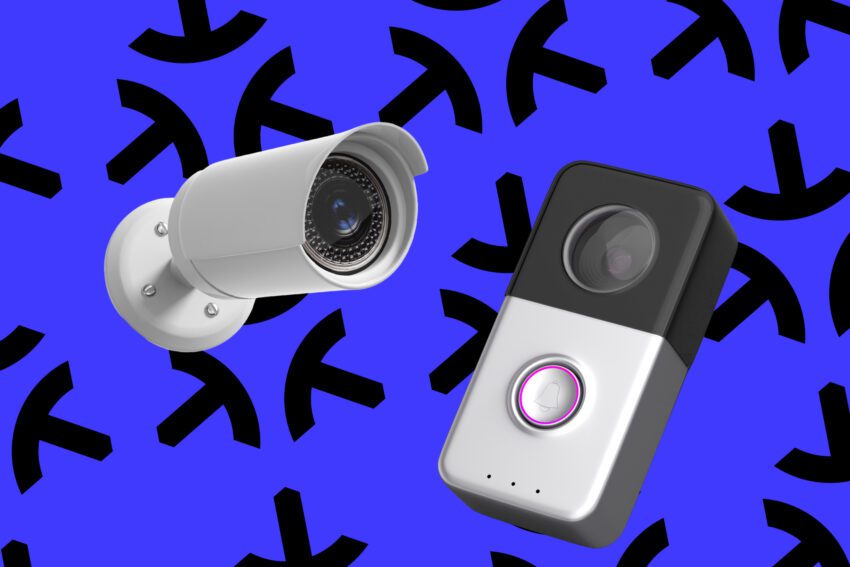
camera support could be the boost matter The Matter smart home standard is set to enhance its capabilities by adding support for video cameras, a significant development for the interoperability standard.
camera support could be the boost matter
Introduction to Matter
Launched three years ago, the Matter smart home standard aims to unify the fragmented smart home ecosystem, allowing devices from different manufacturers to work seamlessly together. This initiative is backed by major industry players, including Apple, Google, Amazon, and the Connectivity Standards Alliance (CSA). The goal is to simplify the user experience and enhance the functionality of smart home devices, making them more accessible and easier to manage.
New Developments in Matter 1.5
With the announcement of the Matter 1.5 specification, the standard is evolving to include support for a wide range of video cameras. This includes indoor and outdoor cameras, wired and battery-powered options, video doorbells, baby monitors, pet cameras, and more. The addition of camera support is a crucial step, as cameras are among the most popular smart home devices, often serving as the focal point of home security systems.
Key Features of the Matter 1.5 Specification
The Matter 1.5 specification not only introduces camera support but also expands its functionality in several other areas:
- Garage Door Controllers: Users can now integrate garage door controllers into their Matter-enabled ecosystems, allowing for remote operation and monitoring.
- Soil Sensors: The addition of soil sensors enables users to monitor garden conditions, making it easier to maintain healthy plants.
- Bi-Directional Charging for EVs: This feature allows electric vehicles to not only charge from the grid but also return energy back to the grid, enhancing energy management.
- Advanced Utility Integration: The new spec offers improved integration with utilities for energy management, allowing users to optimize energy consumption based on real-time data.
Implications of Camera Support
The inclusion of camera support in the Matter standard is expected to have significant implications for both consumers and manufacturers. For consumers, this means greater flexibility and choice when it comes to selecting smart home devices. The ability to use cameras from different brands within a single ecosystem can simplify setup and enhance functionality.
Consumer Benefits
Some of the key benefits for consumers include:
- Interoperability: Users will no longer be locked into a single brand for their smart home devices. This flexibility allows for a more customized and efficient home automation experience.
- Ease of Use: The Matter standard aims to simplify the user experience, making it easier for consumers to manage their devices through a single app or interface.
- Enhanced Security: With the integration of various camera types, users can create a more comprehensive security system tailored to their specific needs.
Manufacturer Reactions
Manufacturers are also likely to respond positively to the new specification. By adopting Matter, companies can reach a broader audience and ensure their products are compatible with a wide range of devices. This can lead to increased sales and customer satisfaction.
Some manufacturers have already begun to express their enthusiasm for the new features. For instance, companies like Ring, Google Nest, and others are expected to update their existing camera models to be Matter-compatible through over-the-air (OTA) updates. This means that consumers may not need to purchase new hardware to take advantage of the new capabilities.
Challenges Ahead
While the addition of camera support is a positive development, there are challenges that the Matter standard must address moving forward. One of the primary concerns is ensuring robust security and privacy for users. As cameras become more integrated into smart home systems, the potential for unauthorized access or data breaches increases.
Security Considerations
To mitigate these risks, it is essential for manufacturers to implement strong encryption and security protocols. The Matter standard will need to provide guidelines and best practices for securing devices, particularly those that involve video surveillance. Consumers should also be educated on how to secure their devices, including changing default passwords and regularly updating firmware.
Market Competition
Another challenge lies in the competitive landscape of the smart home market. While Matter aims to unify devices, there are still numerous competing standards and ecosystems. Companies that have invested heavily in proprietary systems may be reluctant to fully embrace Matter, which could hinder widespread adoption.
Moreover, as more companies adopt Matter, the market may become saturated with similar products, leading to increased competition and potentially driving down prices. While this can benefit consumers, it may also pose challenges for manufacturers trying to differentiate their offerings.
Future Prospects
The future of the Matter standard looks promising, especially with the addition of camera support. As more devices become Matter-compatible, the potential for creating a fully integrated smart home ecosystem increases. This could lead to innovations in automation, energy management, and security.
Potential Innovations
Some potential innovations that could arise from the expanded capabilities of Matter include:
- Smart Security Systems: The integration of various camera types could lead to the development of advanced security systems that utilize AI for real-time monitoring and alerts.
- Energy Management Solutions: With enhanced utility integration, users could receive personalized recommendations for optimizing energy consumption based on real-time data from their devices.
- Home Automation Scenarios: The ability to combine different types of devices could enable more sophisticated home automation scenarios, such as automatically locking doors when the last person leaves home or adjusting lighting based on camera activity.
Conclusion
The addition of camera support in the Matter 1.5 specification marks a significant milestone for the smart home standard. By enhancing interoperability and expanding the range of supported devices, Matter is poised to transform the smart home landscape. As consumers embrace these changes, the potential for innovation and improved user experiences will likely drive further advancements in the industry.
Source: Original report
Was this helpful?
Last Modified: November 20, 2025 at 6:37 pm
2 views















